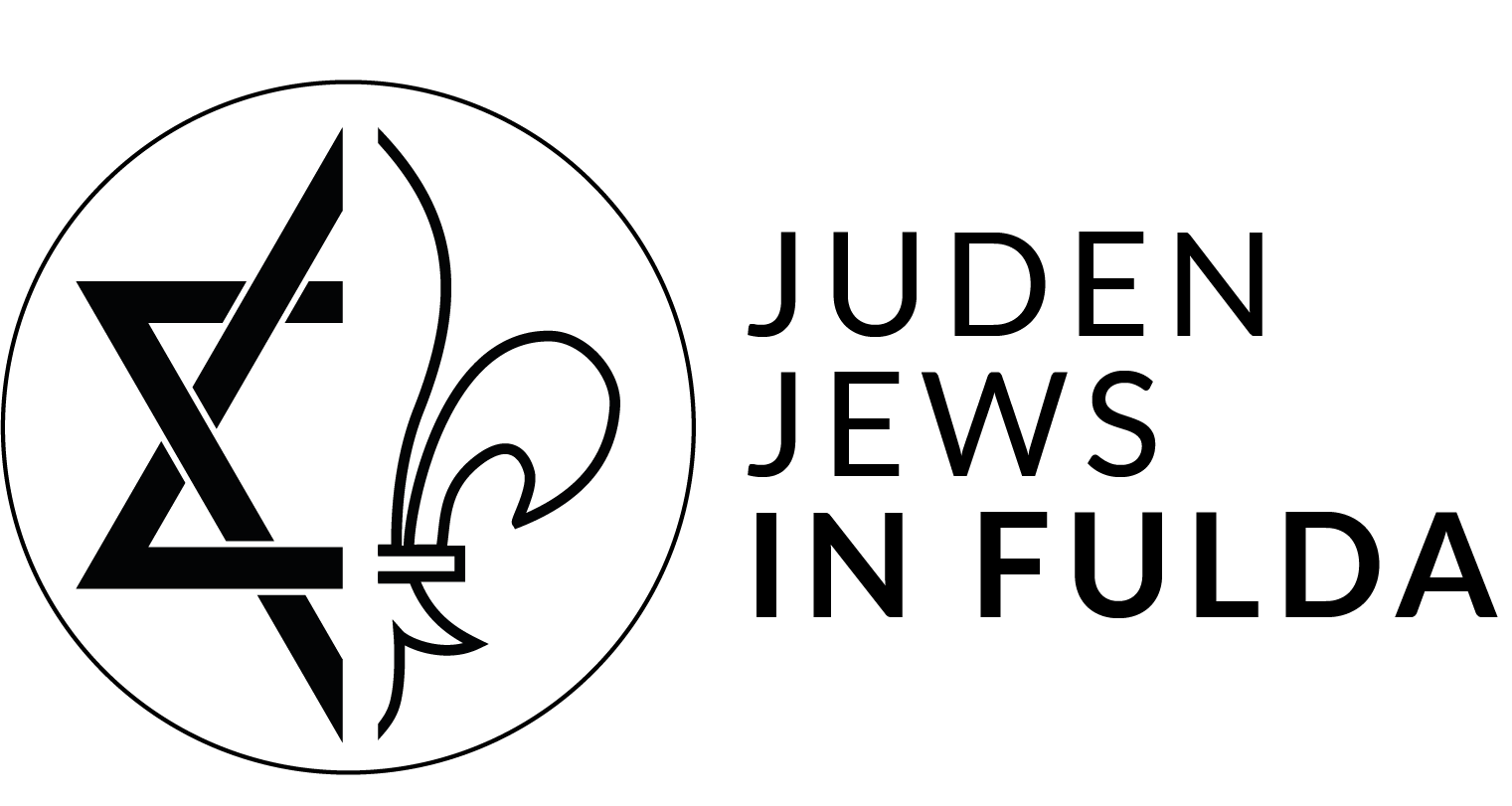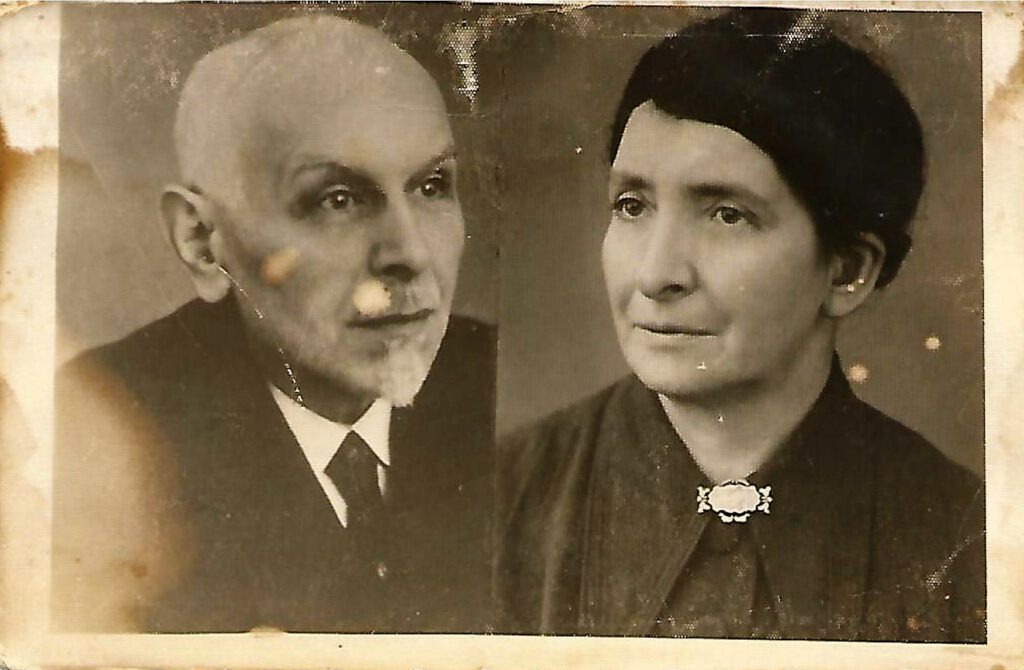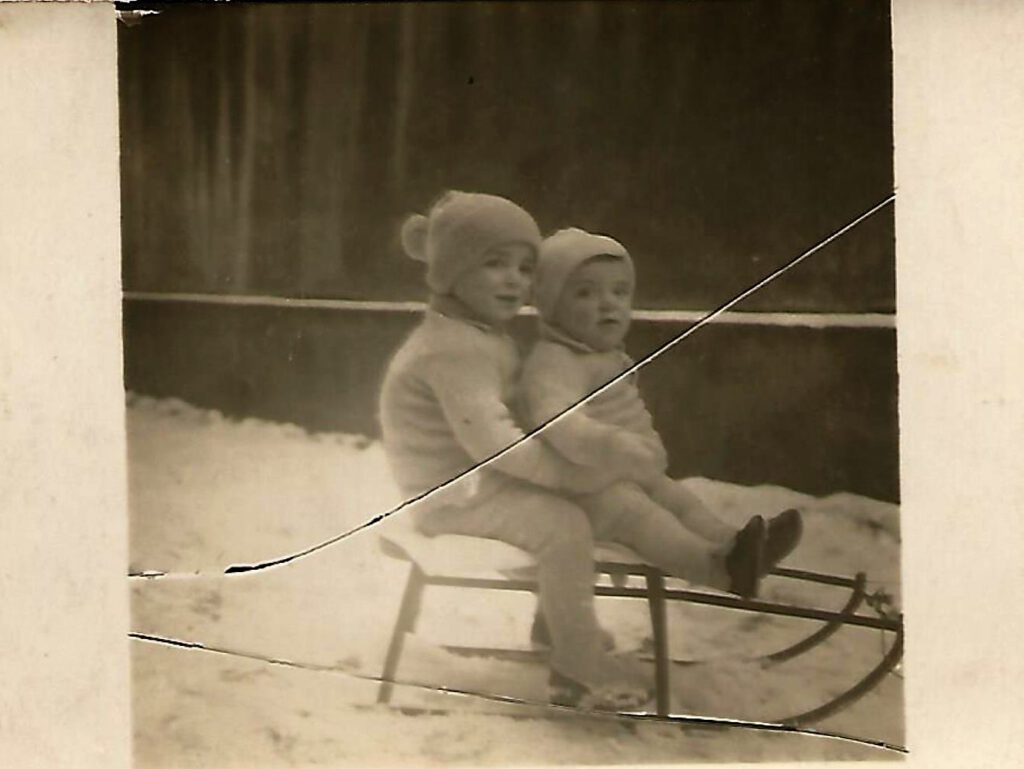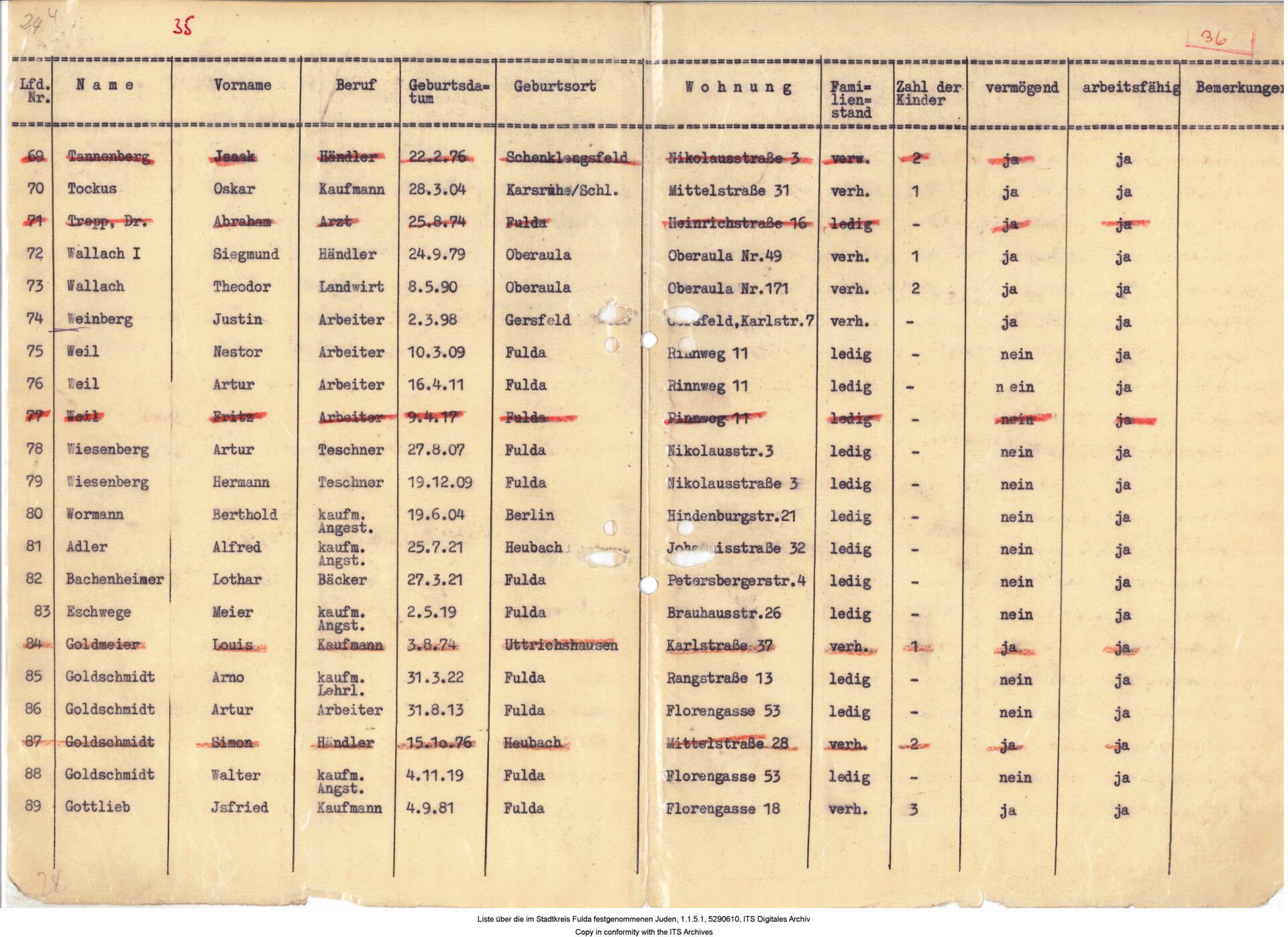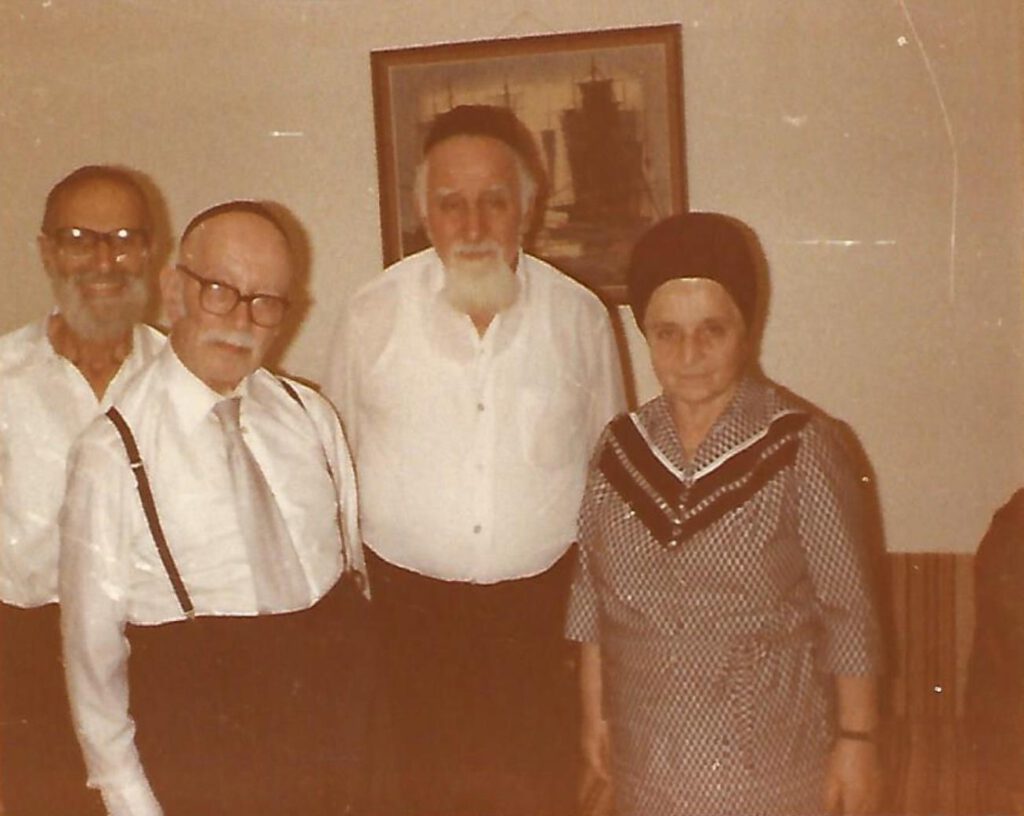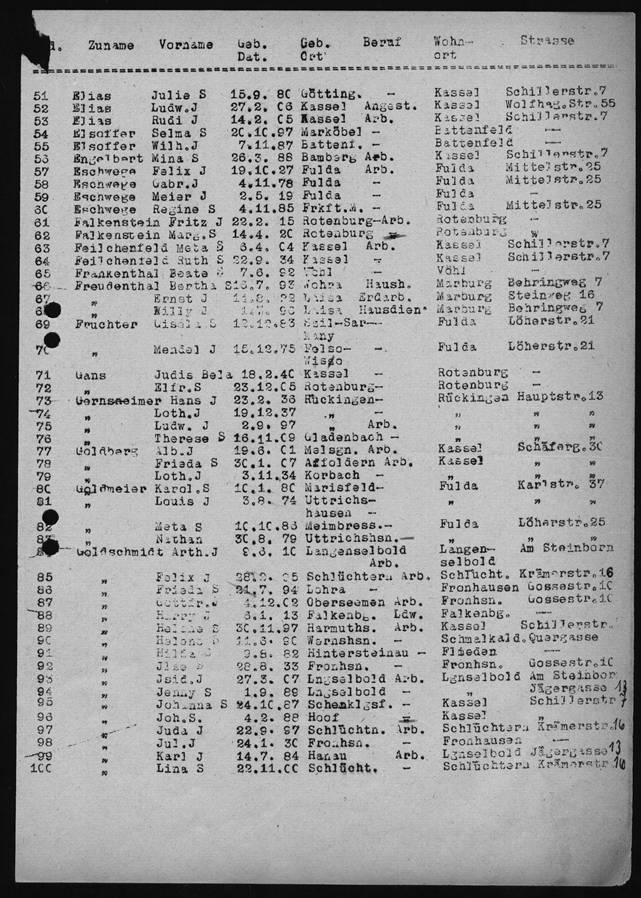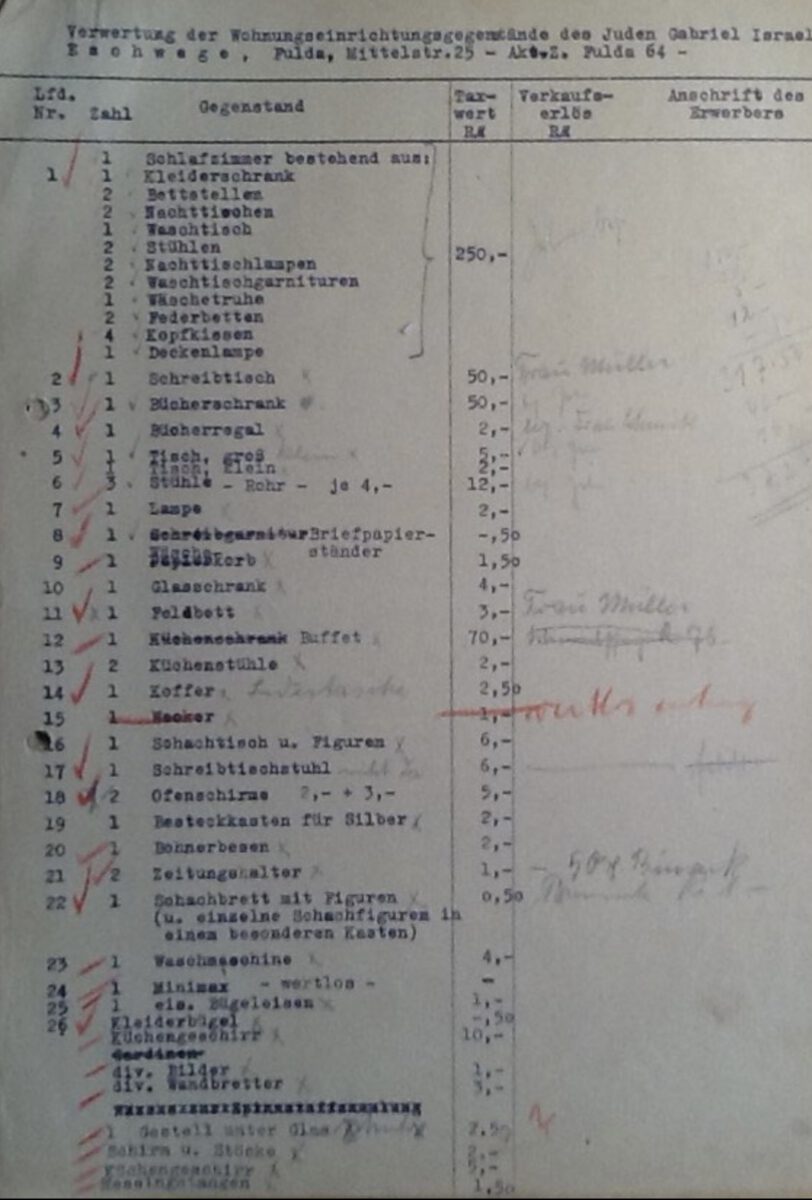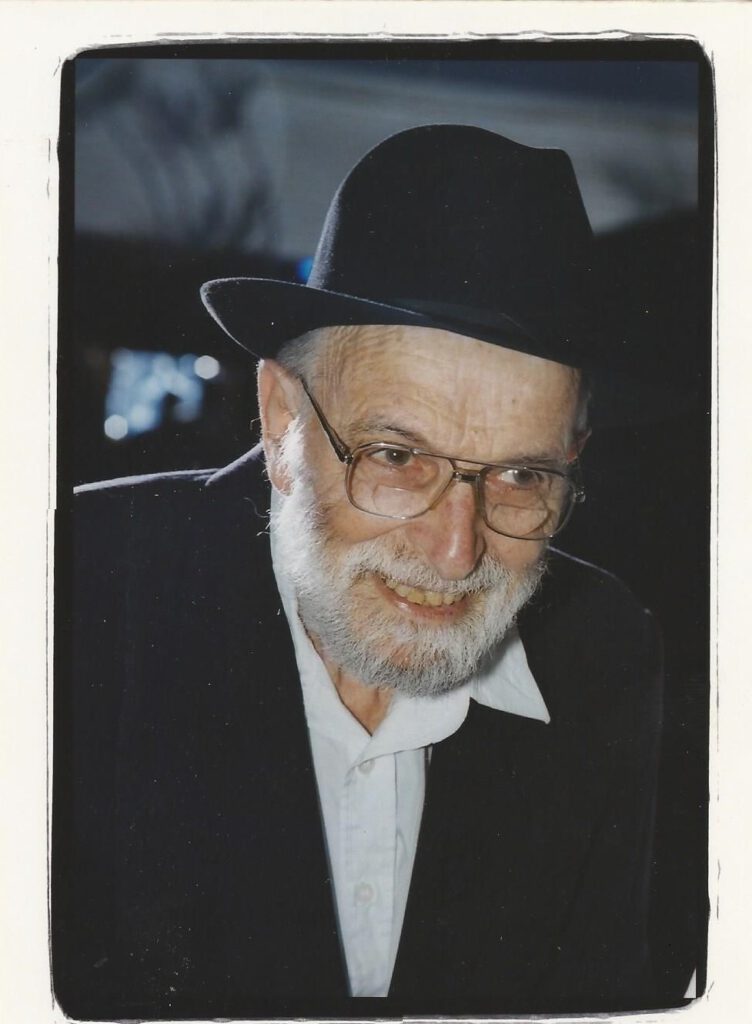Family origin
The Eschweges are one of the oldest Jewish families of Fulda, having first settled in the town in the 17th century, or earlier.
Simon Nathan assumed the name Simon Eschwege on December 27, 1811.
His grandson Simon Eschwege, born December 3, 1799 in Fulda, married Malchen Trepp, born 1804 in Fulda, on February 15, 1832 in Fulda.
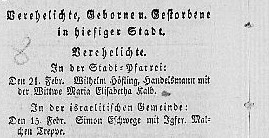
source Wochenblatt for the Province of Fulda, p. 158, 1832; image source Stadtarchiv Fulda
Simon died February 6, 1885 and Malchen died November 13, 1880. Both are buried in the old Jewish cemetery which was destroyed during Kristallnacht.
Simon and Malchen had nine children, who were born between 1833 and 1847 in Fulda.
Their son Samuel Eschwege, born November 28, 1843 in Fulda, was a cigar manufacturer and in his second marriage married Fanny Schweiger. Both lived on Mittelstrasse 25 with their children.
Samuel died April 5, 1929 in Fulda, and is buried in the new Jewish cemetery.
Fanny died March 6, 1942 in Fulda and is buried in Weyhers/Rhoen, about 12km from Fulda. After the Fulda administration closed the new Jewish cemetery in October 1940, the deceased had to be buried in Weyhers. Fanny’s funeral was the second to last in Weyhers.
Samuel and Fanny’s son Gabriel Eschwege, born November 4, 1878 in Fulda, was married on October 27, 1910 in Fulda to Regina Michel, born November 4, 1885 in Frankfurt.
Gabriel Eschwege served for Germany from 1898-1899 in Muehlheim/Ruhr and during World War I in 1915 in garrison duty in Wetzlar.
Gabriel and Regina Eschwege had six children.
Simon, born September 28, 1911
Juda, born June 19, 1913
Auguste, born June 26, 1915
Meier, born May 2, 1919
Benjamin, born December 13, 1925
Felix, born October 19, 1927
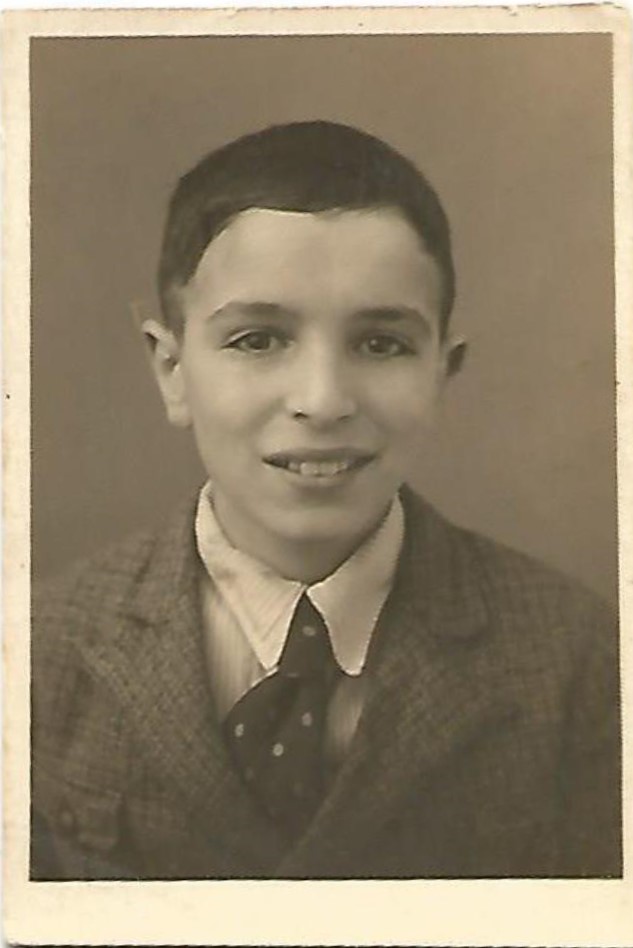
Felix in the late 1930s 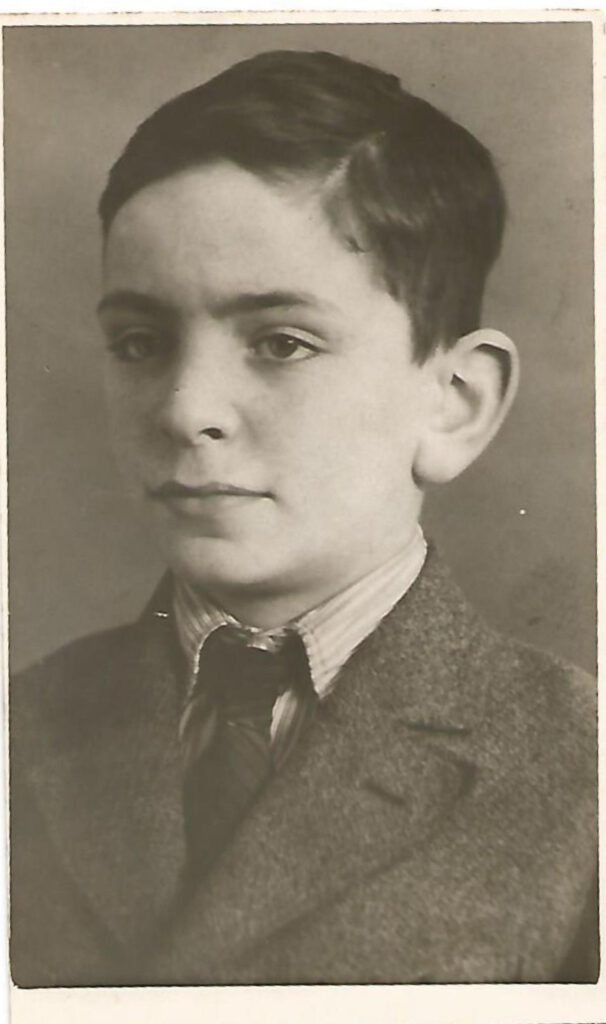
Meier Eschwege 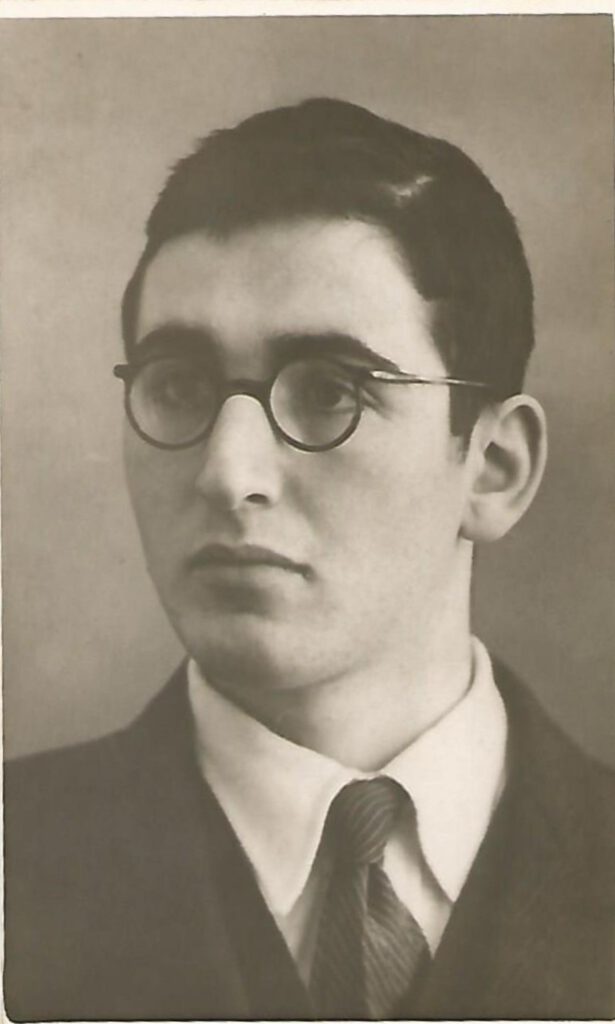
Simon in the mid 1930s
Excerpt of the deportation list from Fulda to Buchenwald on November 10, 1938 with Meier Eschweges name on it.
Simon, Juda and Auguste could flee in time from Germany.
Benjamin was sent by his parents with a Kindertransport to England in May 1939. He describes his life in Germany and the feelings when he had to leave his parents in his memoirs (see below).
All four were reunited after the war in Palestine.
Gabriel and his wife Regine were deported together with their children Meier and Felix from Fulda to Kassel on May 31, 1942 and from there, on June 1, 1942 to Sobibor.
The train stopped in Lublin where male Jews were selected for forced labor and transferred to the Majdanek camp. Meier was among them and separeted from his family. He was murdered in Majdanek on September 27, 1942.
Felix, only 14 years old, was immediately murdered in one of the gas chambers, together with his parents after his arrival in the extermination camp of Sobibor, on June 3, 1942.
Memoirs of Benjamin Eschwege
Made available and translated from Hebrew by his son in law Yeshaya Baror.
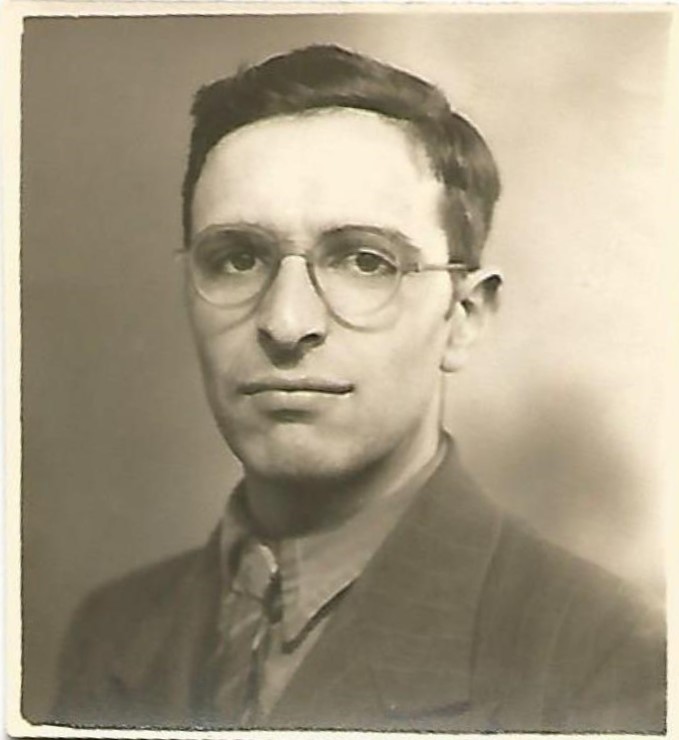
Benjamin Eschwege in Israel, late 1940s
I was born in 13.12.1925 in Fulda, South Germany. My father Gabriel and my mother Rachel had another 5 children. Shimon was born in 1911, Yehuda in 1913, Gustle in 1915, Meir in 1919, and Uri (Felix) in 1927.
Fulda was a small town with a population of 300 Jewish families, most of them observant of Jewish religious ways.
All educational institutions were operative, including a kindergarten, school etc. Around 1935 a Yeshiva (for Jewish higher learning) was opened, with Rav Baruch Kunstat as Head. Rav Kalman Kahana (later a religious leader and member of Parliament in Israel ) served as a teacher there.
Our home was a typical German Jewish home, combining strict observance of Jewish practice with openness to general culture. My father went to a Torah class every evening after work. I went to a Jewish kindergarten and then to a Jewish elementary school. My elder brothers went on to the general higher school, but in my time it was prohibited so I had to make do with elementary education. There were three combined classes with eight teachers, with a shortened daily schedule. On the other hand we had organized classes in the afternoons where we studied diverse Jewish studies which were not taught in school.
My father had a large store for machines and tools. I was told the shop provided decent income until the rise of the Nazis in 1933. They prevented Germans from buying at Jewish shops. This made earning a living more and more difficult so the shop had to be sold to non-Jews. I am sure this caused much indignation and pain, as my father had to give away a business he had built and developed.
List of the auction house inventory of Gabriel Eschwege’s family.
The auction took place on August 31, 1942 under the direction of the Fuldaer Finanzamt. All the belongings the family was forced to leave behind were bought by residents of Fulda and its sourroundings.
In the morning of Kristallnacht, 9/11/1938, we were sent home from school. There was an atmosphere of scariness among all the Jews. That evening the Germans set fire to most of Germany`s synagogues, and also our synagogue. The Jewish school was subject to vandalism but was not burned.
All men aged 16-60 were taken to a concentration camp. My father was exactly 60 and was thus saved. But my brother Meir was taken and held at the concentration camp for about six weeks. Meir had his fingers frozen due to the stay at the camp, and most had to be amputated. Because of the required medical treatment he could not leave Germany despite having the licence to do so.
Persecution of Jews in Germany became more severe and people became convinced
there was no hope for their children there, and made every effort to send them outside Germany. England was prepared to accept a certain number of children, on the condition that there was a family or institution willing to have them. I went to England within a group of children in May 1939, three months before the outbreak of WWII. I am sure this was a very difficult separation for my parents. For the children, most took it as having no choice …
One day I got a letter from my parents, through the Red Cross. They said : “We will travel soon”. That meant they expected to be deported shortly. This was one of the rare times I broke out crying.
We never heard any more of them and never knew where they and my brother Meir and brother Uri (Felix) were sent.
Yeshaya Baror, whose father was one of the prosecutors in the trial against Adolf Eichmann in Jerusalem, says about his father in law, Benjamin Eschwege:
“May I add that he worked until old age in the Kibbutz, where he lived, as a locksmith, and was always busy and happy with his work and daily hours of learning Torah. But he did not easily show emotion and never talked of his years as a child and young man. In my view, the terrible mental wounds he suffered never healed.”
Many thanks to the family Eschwege for providing pictures and documents.
